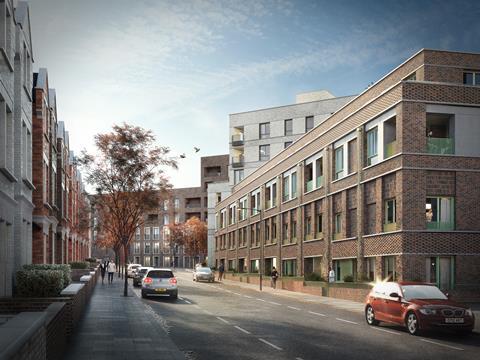Peabody shows strong surplus growth but Sovereign sees sales margin fall
Two associations together managing more than 130,000 homes in London and the South-east have reported strong half-year results despite the market downturn which has caused others to pause development.

London-based Peabody said it increased its surplus – the housing association version of profit – for the six months to September to £67.2m, up 25% on the same period last year. While this increase is partly derived from to the recent merger with Town and Country Housing, the association’s surplus still grew more than 10% on a like-for-like basis.
The association’s turnover from sales rose to £75.4m, rising 44%. It also maintained its margin on sales at 23%.
In the period, Peabody, which manages 65,000 homes, closed a £130m funding deal with the European Investment Bank and a £75m facility arrangement with BNP Parabas. It also signed a £8bn joint venture with developer Lendlease, for the 11,500-home redevelopment of the Thamesmead Estate in south London.
Meanwhile South-east-based Sovereign, which manages 59,000 homes, said it grew its housing output by 23% in the same six-month period on the year before, producing 984 homes. Turnover for the period increased more modestly to £212m, up 4%.
However, Sovereign admitted the broader housing market downturn had started to impact upon sales, with the association’s sales margin and surplus both down. Sovereign’s surplus was £77m, down 10%, and its sales margin was 23.8%, down from 27.5%
The organisation said in a statement that it was making “good progress towards securing a pipeline programme of 1,900 homes per year” and that “property sales continues to perform well” and that the reduction in margin was simply “in line with market conditions”
Both organisations managed to maintain their credit ratings in the period, during a year when credit ratings of a number of associations have come under pressure.
Already this year London’s biggest developing association, L&Q has halved its predicted surplus, and announced it is putting new projects on hold, while fellow London association Notting Hill Genesis has seen its surplus fall sharply, amid a weak housing market in the capital. Just this week the RICS’s monthly residential market survey reported falling demand for homes due to Brexit and general election anxiety.
Susan Hickey, chief financial officer at Peabody, said: “This is a strong performance in the prevailing environment, with increased turnover and surplus. Operating margins have improved compared to the equivalent period in 2018 on a like for like basis, and our sales margin of 23% reflects a performance on price and volume which is in line with expectations.
Peabody chief executive Brendan Sarsfield said: “Our strong financial performance is helping us invest more than ever in new and existing homes, growing our development pipeline and increasing the number of new genuinely affordable homes we provide for people in London and the south-east.











No comments yet